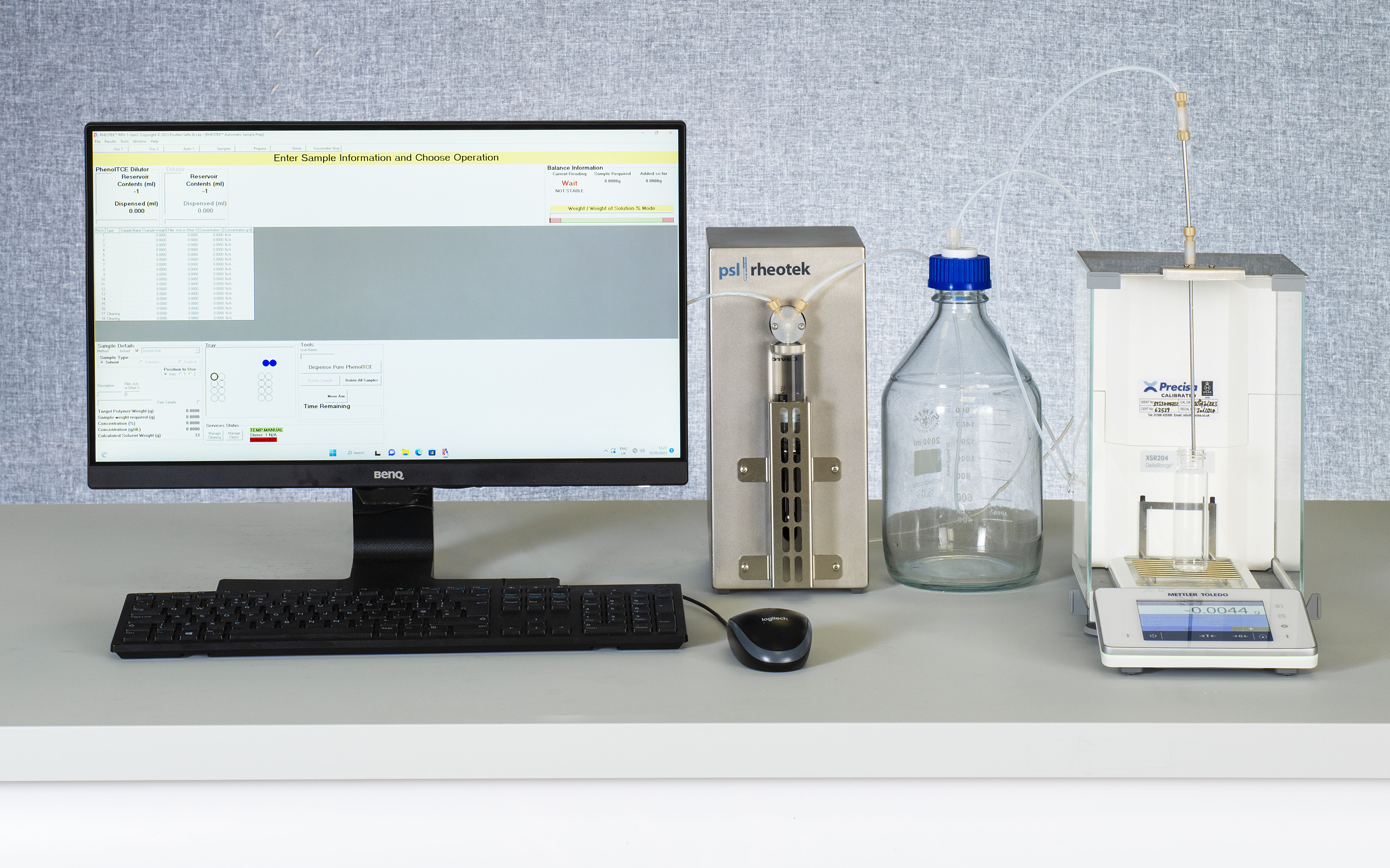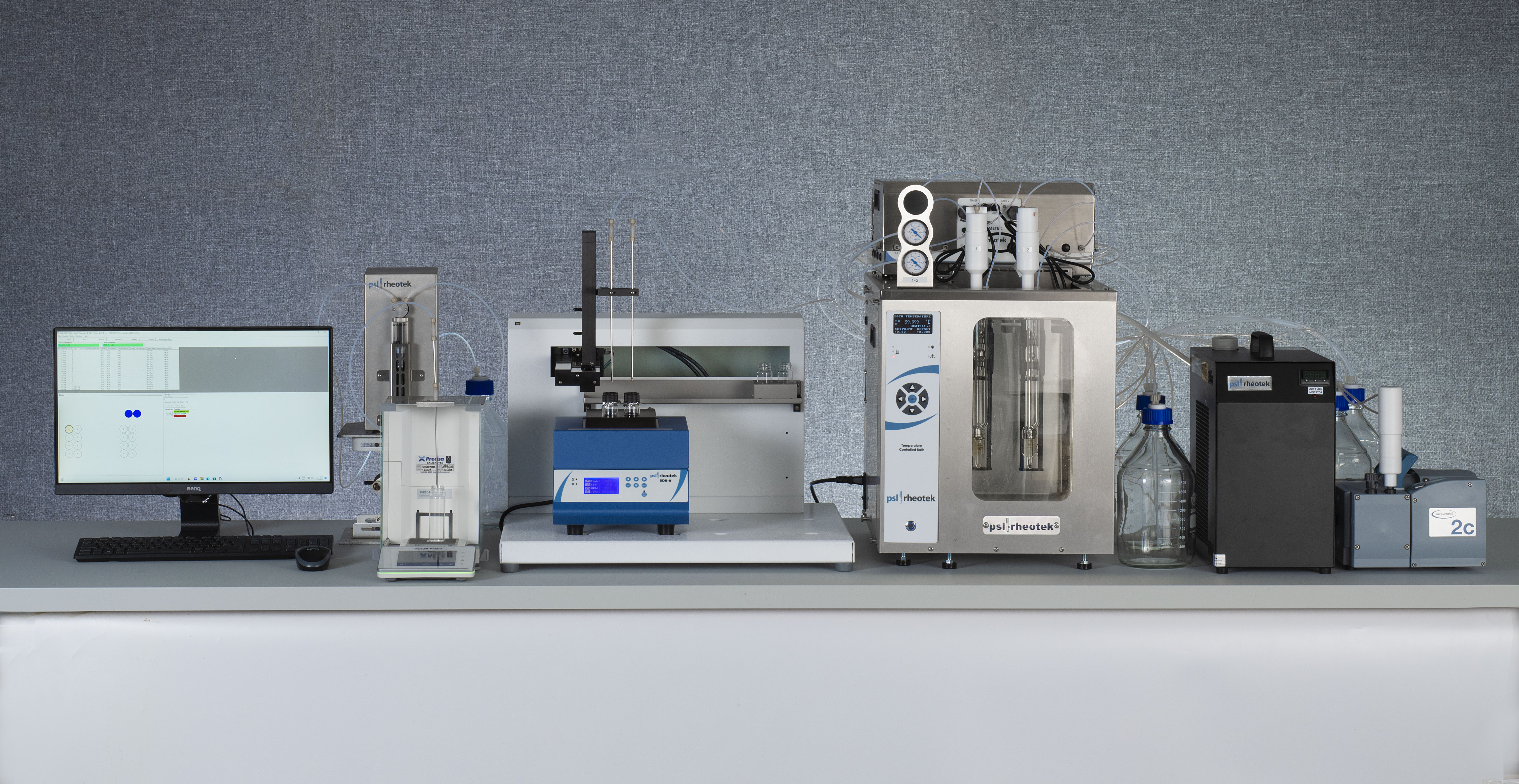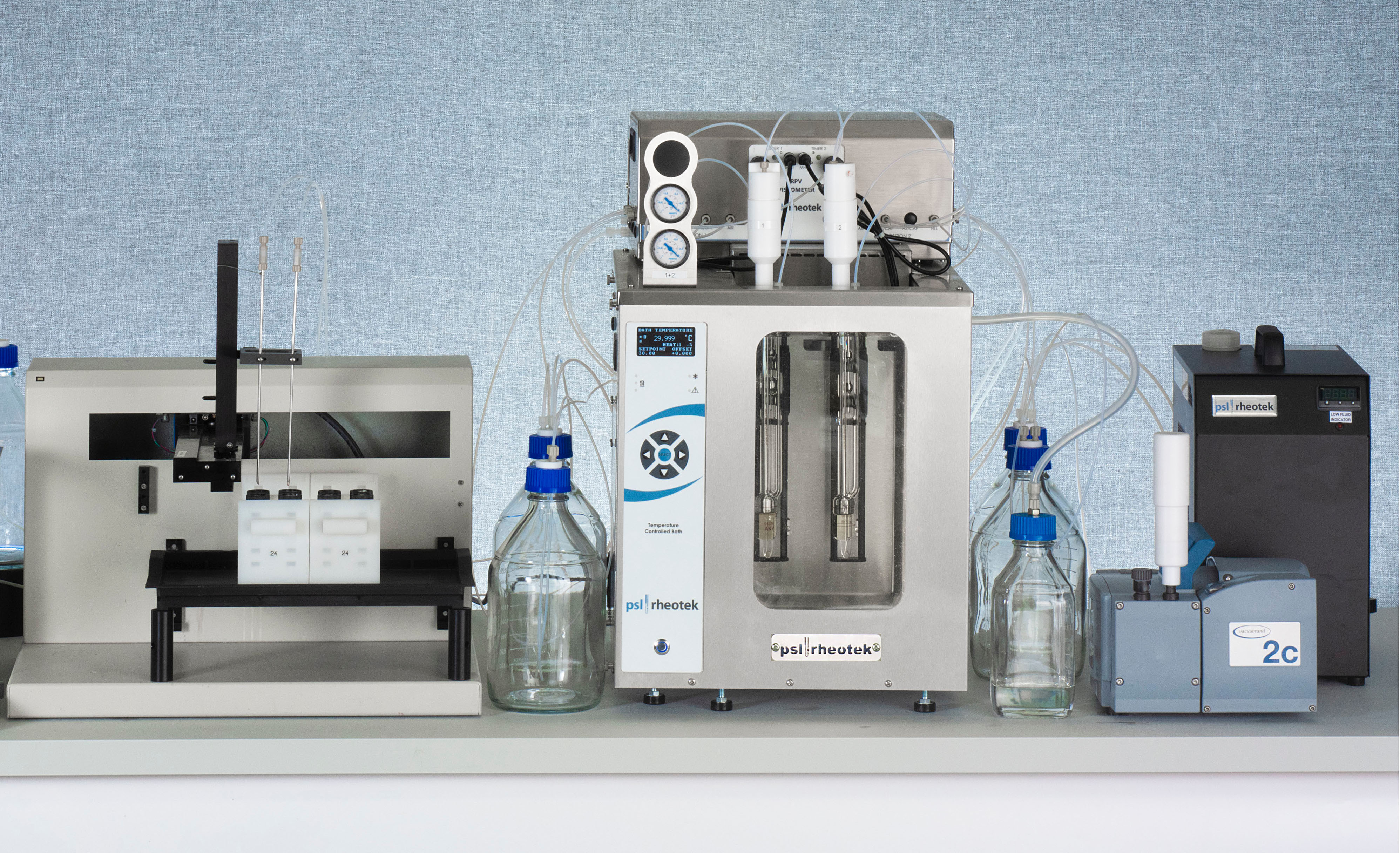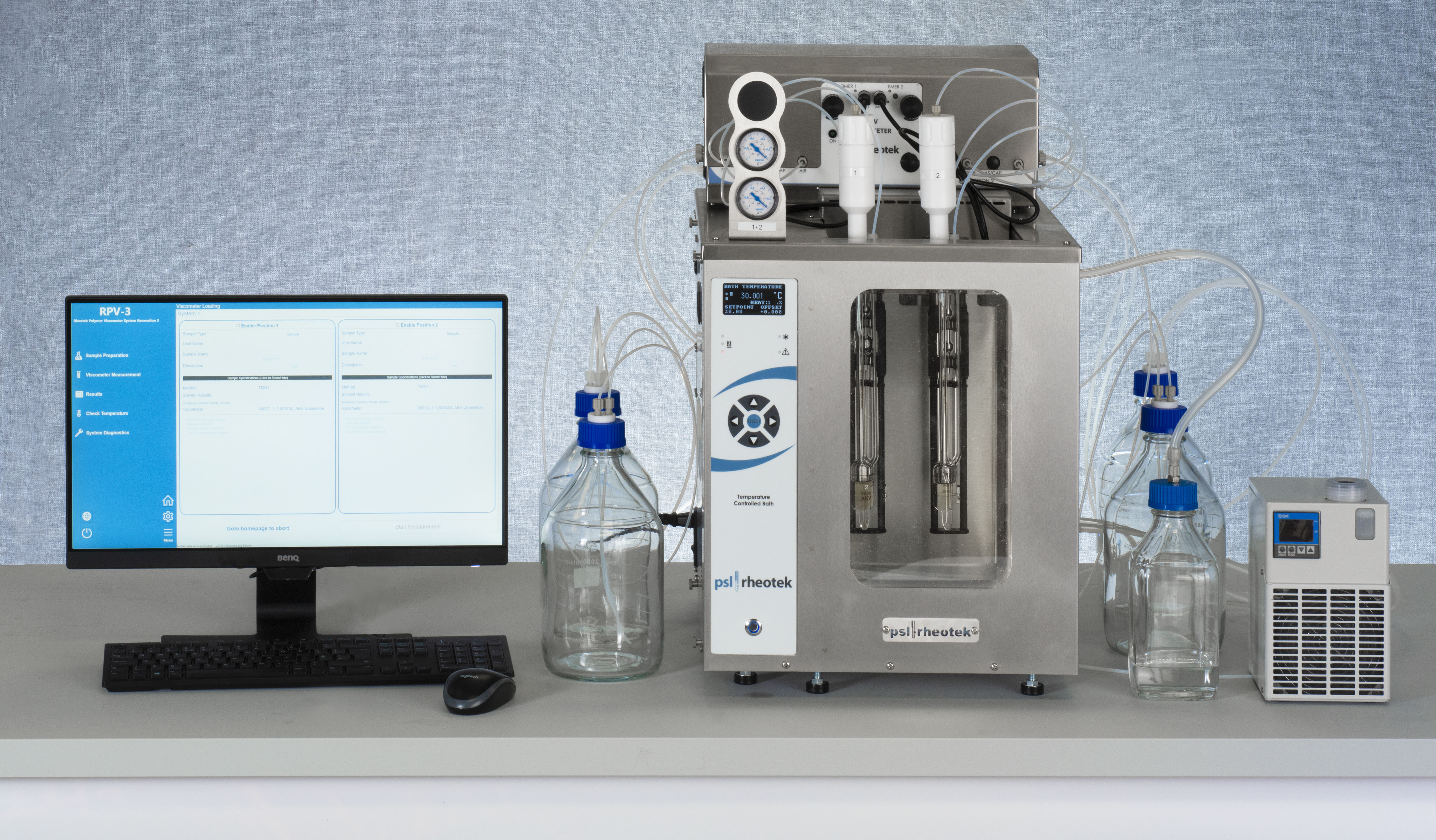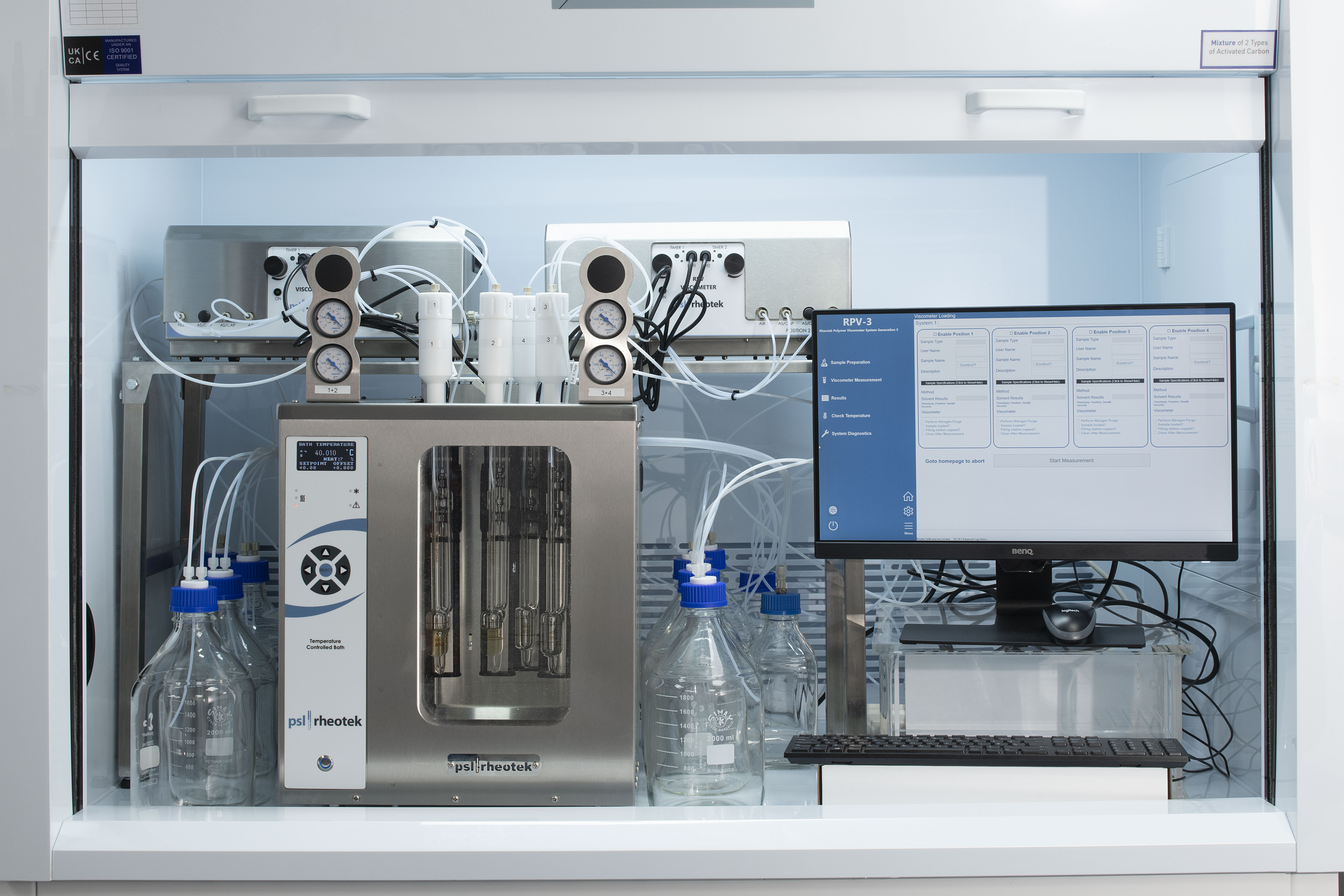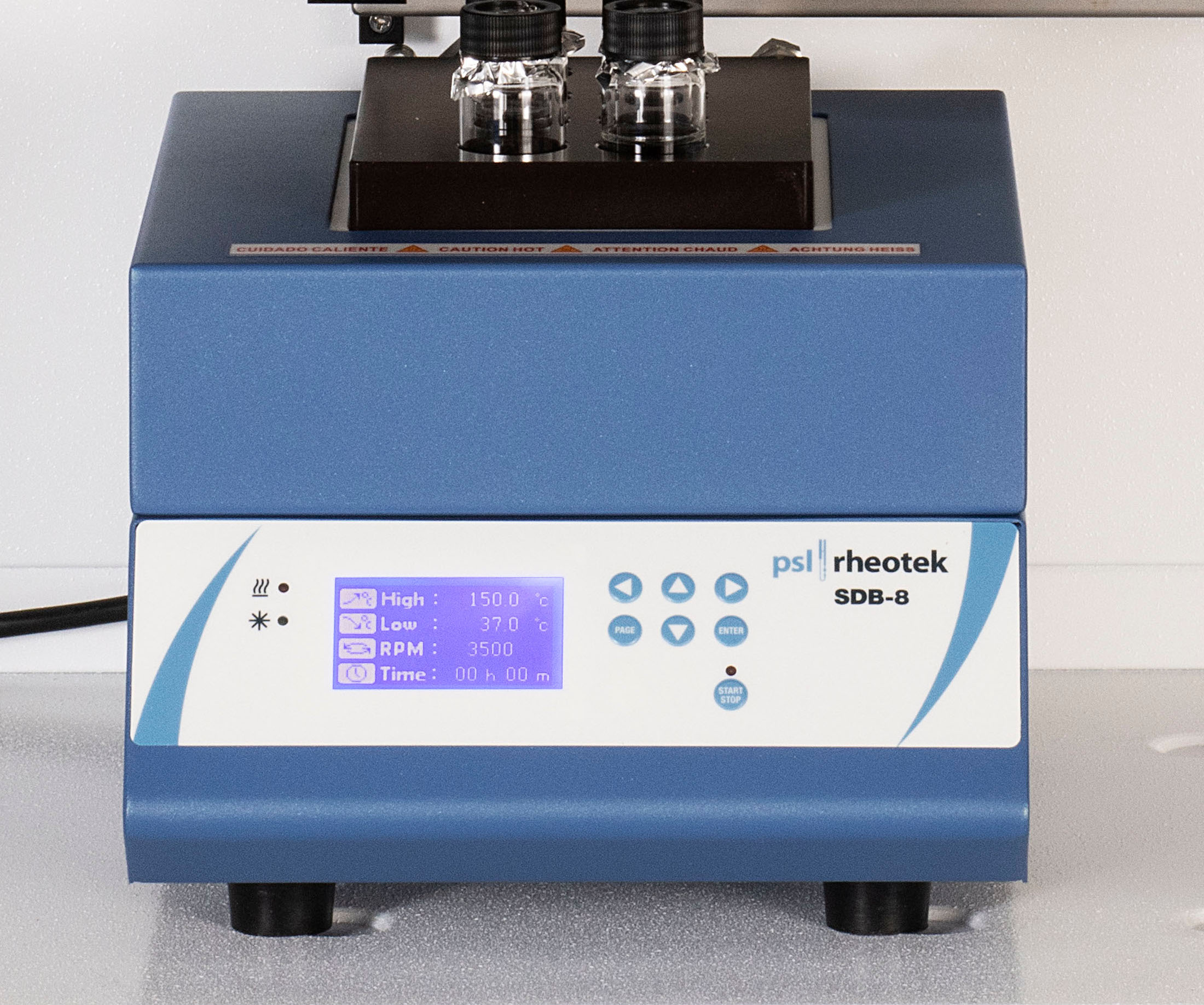IV of PET
IV of PET
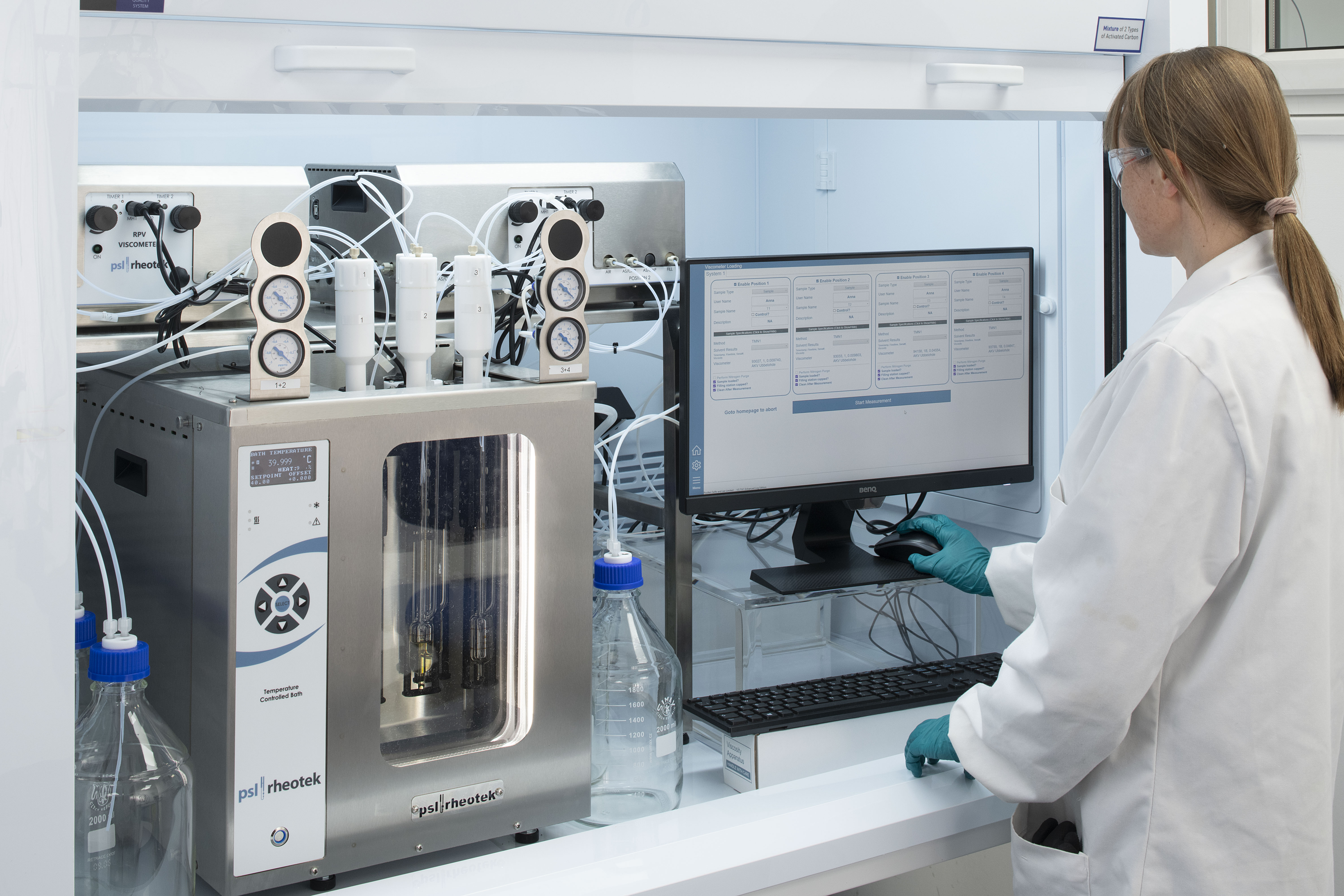
Concentration
Repeat flow times
Weight to weight sample preparation
What solvents do I need?
The test method requires a 0.5% concentration of PET dissolved in 60/40 phenol/1,1,2,2-tetrachloroethane solution. Chloroform and Acetone are typically used for cleaning and drying the sample path on completion of the measurement.
What is the temperature of measurement?
Solvent and solution flow times are measured at 30 degrees C. Temperature control is achieved using a constant temperature viscometer bath.
What are the installation requirements?
Inside a fume hood, which is located in an air-conditioned laboratory with a stable temperature.
How long does it take to run an IV test?
A complete test cycle takes approximately 30 minutes using the PSL Rheotek RPV Polymer Viscometer. After 30 minutes, you can load a new sample in the viscometer.
Can I measure IV without using solvents?
The term IV refers to solvent based viscosity. True IV can only be measured by dissolving a small polymer sample in an appropriate solvent and the running a relative kinematic viscosity in a glass capillary viscometer.

